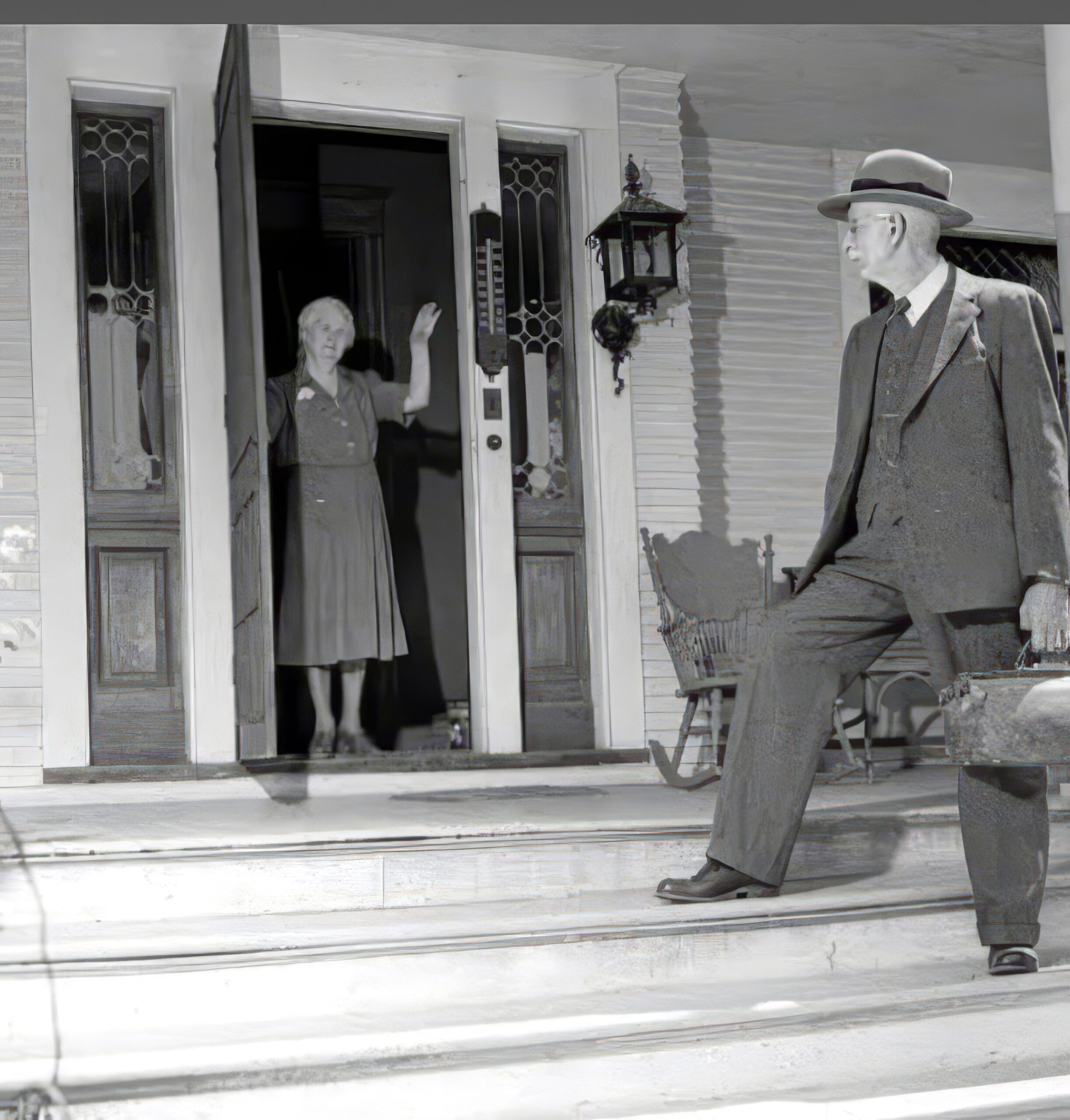Managing Multiple Sclerosis – Why a Primary Care Physician (PCP) matters
Your MS Care Takes a Village. Let’s Start with the Family Doctor
We all know how much the Role of the Primary Care Physician (PCP) has changed over the years. One of my earliest childhood memories highlights just how different things were back in the day.
A Doctor Who Made House Calls
Picture this: My mom’s childhood family physician, Dr. C., his office just a few blocks from my grandparents home in Elmhurst, Queens, NYC. One summer day he took the short stroll over to my Grandparent’s place to make a house call to check on little Frankie (that was me!). I remember not feeling great but in my mind’s eye, I can still see him clear as day and he was straight out of central casting: tall, thin, neatly attired, with a trusty black medical bag in hand. You absolutely know…I was scared to death!!
He examined me right there, on Nanny’s couch in the parlor. He spent close to 30 minutes evaluating me, making his diagnosis, and prescribing treatment. And when he was finished? He sat right down there with me to catch a few minutes of my favorite TV show – Bozo the Clown (WPIX, Channel 11).
That house call wasn’t just about a diagnosis and treatment it was about connection, care, and trust.

Bozo. I will always remember him in Black & White:)
Today’s Primary Care Physician (PCP) Experience
Fast forward to today’s typical PCP visit, and the contrast couldn’t be more striking. The modern experience feels a lot closer to speed dating than a house call.
Appointments are squeezed into 10 to 12 minute slots, leaving little time for meaningful conversation or connection. Physicians are under immense pressure to:
• Maximize patient volume
• Meet insurance and billing targets
• Manage endless administrative tasks
With so little time for real conversations, many patients especially those with chronic conditions are left feeling unheard and underserved. It’s no wonder people are looking for alternatives.
The Rise of Concierge Medicine
For those who can afford it, there’s an alternative: Concierge or cash-based care.
In concierge medicine, doctors spend 45 to 60 minutes per patient, asking in-depth questions about:
✔️ Diet, exercise, and sleep habits
✔️ Stress and mental health
✔️ Comprehensive lab work and deeper diagnostics
This kind of personalized, proactive care feels almost revolutionary in today’s fast-paced, insurance-driven system. A Concierge health team can be absolutely invaluable, especially if you are requesting specific accommodations…helping to translate your symptoms and medical situation into terms HR and your management can act upon. This accommodations guide walks through examples of what you can request and how to frame it.
Finding My Own Balance: Hybrid Care
Not everyone can afford concierge medicine as their sole option and certainly not me !! Instead, I’ve found a hybrid approach that balances personalized attention with financial practicality.
Here’s how it works for me:
🔹 Concierge Medicine for Proactive Wellness – My concierge doctor takes a big-picture approach, diving deep into my health history, reviewing specialized lab work, and helping me optimize my lifestyle to manage MS more effectively. The time and attention I get here makes all the difference.
🔹 Traditional Insurance Based Care for Routine Needs – My insurance based PCP handles the basics: check-ups, routine screenings, colds, and the referrals needed to keep my coverage in place.
This setup allows me to get the best of both worlds a trusted doctor who truly knows me, while still maintaining the financial security and network access that traditional insurance provides.
Lessons from My Early MS Journey
In the days of my early, undiagnosed MS, I tried the DIY approach. I was frustrated with the revolving door of PCPs and specialists, convinced that if I just searched hard enough, I’d find the missing puzzle piece myself.
So, I became my own doctor.
✔️ I spent hours researching symptoms, chasing after every vague possibility.
✔️ I self-diagnosed and tried every supplement, diet, and alternative treatment that promised results.
✔️ I hopped from one specialist to the next, looking for the one doctor who would finally “get it.”
Looking back, I wish I had invested that time and energy into something far more valuable: building the right medical team from the start.
The Importance of Building the Right Support Team
Managing MS or any chronic illness isn’t a solo mission and the Role of the Primary Care Physician (PCP) is certainly a critical component. You need professionals who understand the complexities of MS and can guide you through them. That means finding doctors who are:
✔️ MS-literate not all neurologists specialize in MS, and that makes a huge difference.
✔️ Willing to listen because no one knows your body better than you.
✔️ Proactive rather than reactive helping you stay ahead of symptoms rather than just responding to flares.
Have you had a standout experience or challenge with your primary care physician in managing MS? Share your story in the comments section at the very bottom or reach out directly. Your insights could help others navigate this critical relationship with greater confidence and clarity.







